THE PLATFORM (2019)
A vertical prison with one cell per level. Two people per cell. One only food platform and two minutes per day to feed from up to down. An endless nightmare trapped in The Hole.
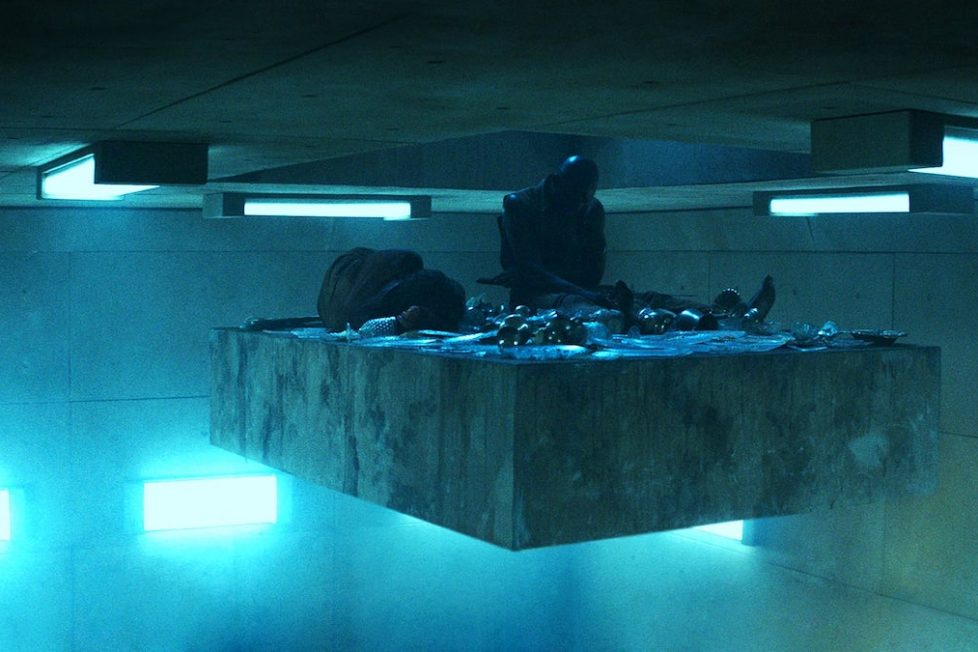
A vertical prison with one cell per level. Two people per cell. One only food platform and two minutes per day to feed from up to down. An endless nightmare trapped in The Hole.


At a time when some are hoarding toilet paper and hand sanitizer, Spanish horror The Platform couldn’t have arrived at a more apt moment. Galder Gaztelu-Urrutia’s movie explores our relationship to greed with sinister honesty, resulting in a story that’s as dark as it is relevant. While by no means an easy watch, there’s an important message behind, particularly since Netflix picked it up during the COVID-19 pandemic.
At its core, The Platform is science-fiction. Its claustrophobic and mysterious tone is comparable to The Cube (1997) and the political dialogue is an added juicy bonus. Both films assemble strangers in various painful circumstances, and The Platform earns its place on the shelf of any avid sci-fi fan’s collection for its drip-fed reveals and grander implications.
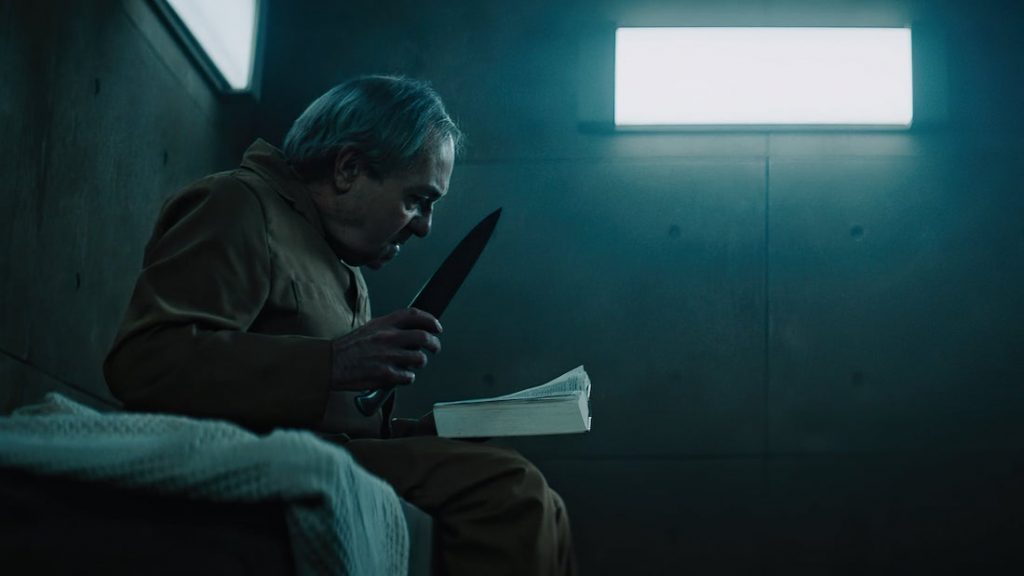
The story centres on a ‘Vertical Self-Management Center’ (or prison) with 333 floors (two per cell), which translates to 666 souls; an indication, amongst others, that the bottom represents Hell while those at the top are more privileged and closer to ‘Heaven’. A vertical shaft runs through the floors and, once a day, the titular platform is lowered with just enough sustenance for everyone if each chooses moderately.
The prison essentially doubles as a physical manifestation and extreme representation of the class system. At times, The Platform seems to prioritise shocking its audience with visuals and cringe-worthy gore, which are the areas it fails in. It’s often too unforgiving and gruesome to take seriously, and some audiences may feel too horrified to accept also accept the criticism and pessimistic view it paints of human nature.
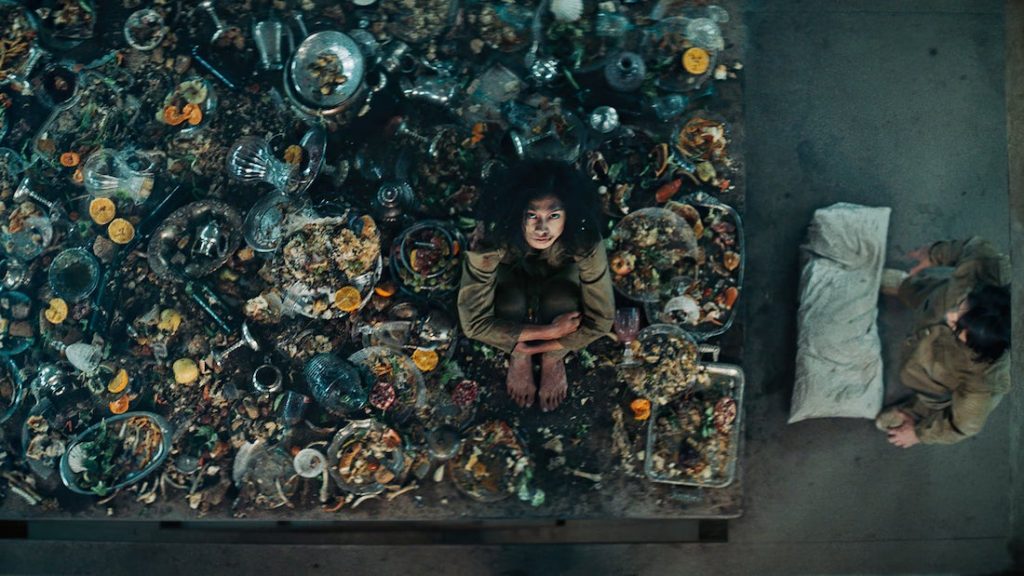
The more advantaged prisoners at the top of the shaft take the lion’s share of food, leaving little, if any, for those poor unfortunates living at the bottom. When a man called Goreng (Ivan Massague) wakes up in the facility, he finds himself on floor 54—not far enough from the top to realise the deadly consequences of the system, but distant enough that only scraps remain for him and his cellmate, Trimigasi (Zorion Eguileor).
Trimigasi has entered the prison as a way to avoid being sent to a mental institution for throwing a television out a window that accidentally killed someone, bringing with him a knife as every prisoner is allowed one item. Goreng has entered voluntarily as a way to quit smoking. In addition, he’ll get a college degree if he spends six months there… or, rather, survives six months. He’s brought along a copy of Don Quixote and the parallels between the film’s events and this novel are unmissable.
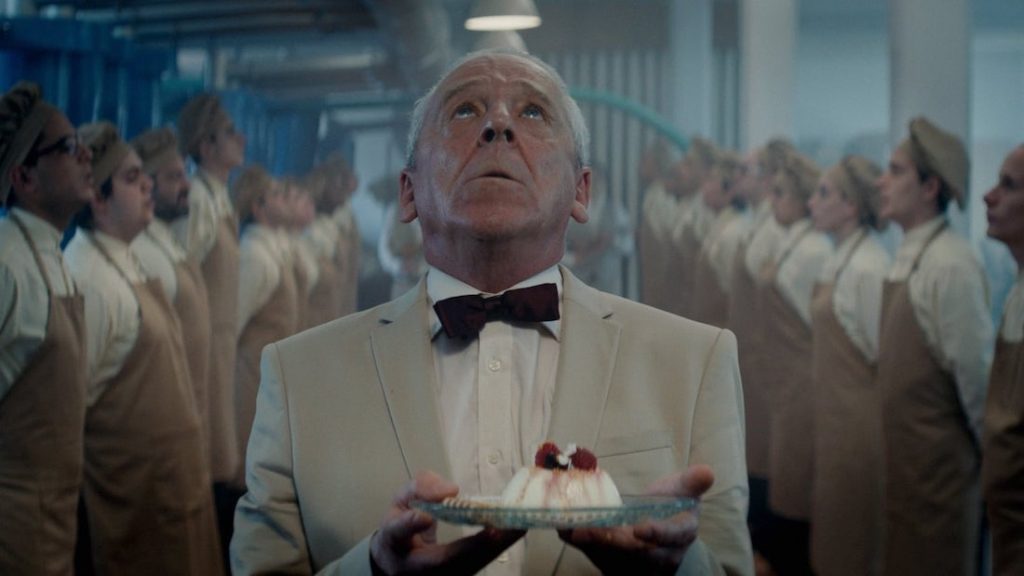
The inmate’s personal possessions tend to be defining items for all those we meet. One excellent montage shows many of the prisoners with their single belonging so eagle-eyed viewers can spot them. (One brought a surfboard, which I can only assume is there for a scarce bit of comic relief!)
Goreng has three different cellmates over the course of the film. Following Trimigasi, he’s joined by a woman called Imogouri (Antonia San Juan) who used to work for the facility’s admissions where she was oblivious to how bad the inner workings of the institution are. She’s a walking metaphor for how ignorant those in positions of power can be for those the less privileged and the reach of their selfish actions. Imoguiri pleads with prisoners to take only their share of the food on the platform, but she’s inevitably ignored. How can those who are less advantaged trust a more-privileged voice?
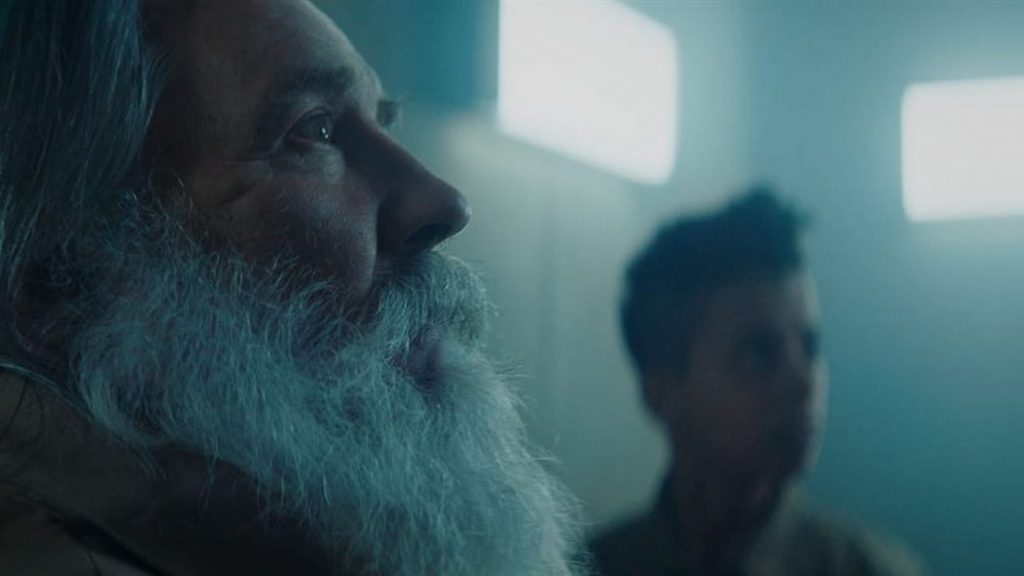
Goreng’s third and final cellmate is Baharat (Emilio Buale). And they put aside their differences in race and class to team up, aiming to feed those on the lower levels by showing that if those higher up can go hungry for just a day, everyone will benefit from the greater good.
The Platform is a science-fiction film with a level of suspense and horror that never loosens its grip. It examines social norms in harsh extremes, which makes the ambiguous ending a little frustrating. It neither gives full closure to its protagonist nor says with certainty whether his final plan worked. I was hoping for something clearer cut.
Gaztelu-Urrutia and his team worked out many small details within the movie, introducing just enough new themes and characters to keep one’s interest. The plot also quietly moves forward and provides satisfying answers until the unsatisfactory and ambiguous ending.
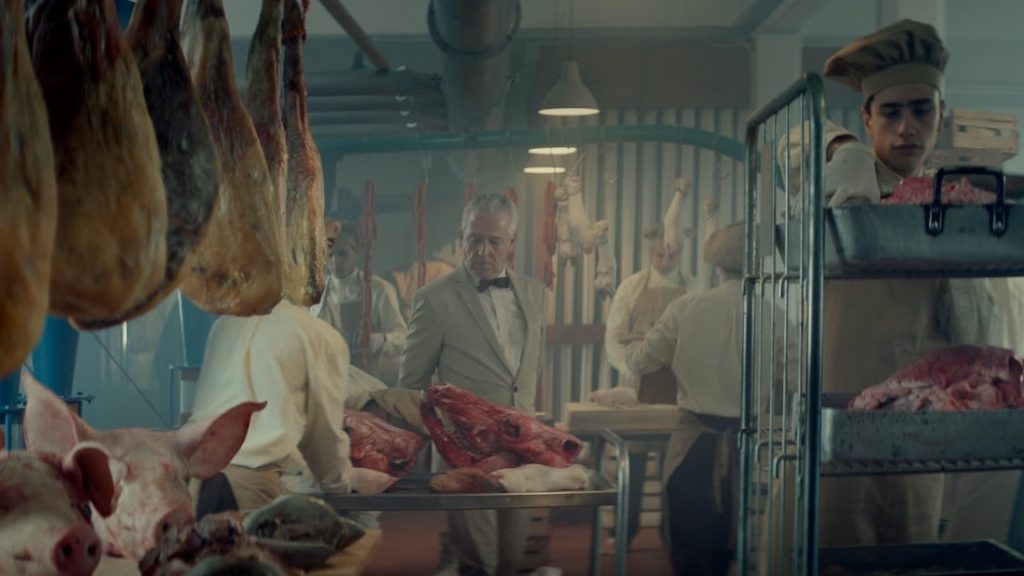
It’s rare for a film to be so engaging from beginning to end, especially one that relies on dialogue. The visuals are restricted to the cement prison interiors, which are so bleak one can’t imagine how people would survive in there. The darkness of the situation is constantly engaging and not a single character gets wasted. All have larger implications than is first apparent, and most of them have rewarding attributes as well as faults. The film suggests your class can shape how you develop and the person you become, which makes it a challenging necessity to try to understand people above or below you.
As broken as the system is, Gaztelu-Urrutia is urging us to work together to find common ground. Even though human suffering isn’t measurable or comparable, the world can be better if we know we’re not entitled to anything. His message is to be thankful for what you have and try to share. You can’t fight the system by kicking against it and indulging yourself can make it worse, even if you can’t immediately see the consequences of your actions. The Platform is an excellent film simply for how thought-provoking it is, and while there are disturbing scenes, the real horror lies in the accuracy of its twisted view on society.
SPAIN | 2019 | 94 MINUTES | COLOUR | 2.35:1 | SPANISH

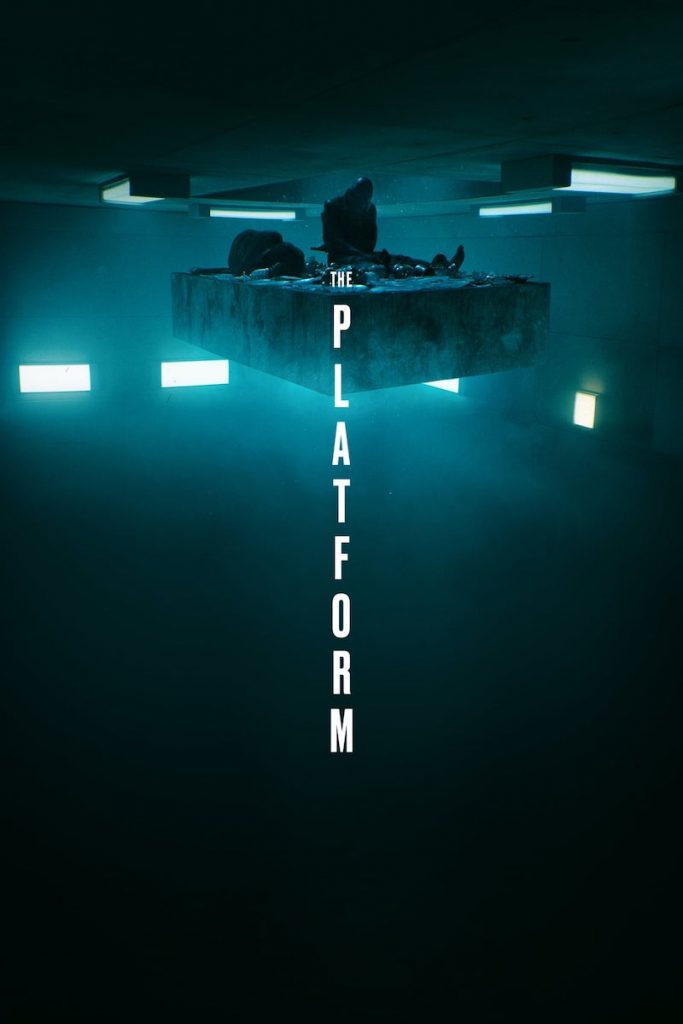
director: Galder Gaztelu-Urrutia.
writer: David Desola & Pedro Rivero.
starring: Iván Massagué, Zorion Eguileor, Antonia San Juan, Emilio Buale Coka & Alexandra Masangkay.
